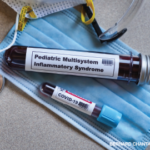He noted a paper on COVID-19 associated arthritis, which has variably been reported as either COVID-19 viral arthritis and COVID-19 reactive arthritis. In the paper, the authors found 33 cases of COVID-19-associated arthritis described in the medical literature, and the majority of these cases were in adults, included peripheral joint involvement, responded well to treatment and were self-limited. However, the authors noted that it’s not possible to exclude other potential etiologies as the cause of arthritis in these patients and that the causality between SARS-CoV-2 infection and the onset of arthritis still needs to be proved because substantial mechanistic and epidemiological data are lacking.2
Another possible complication of COVID-19 explored in the research literature is COVID-19-associated bone loss. In a paper, Harris et al. noted that in vitro and preclinical studies suggest that SARS-CoV-2 may directly infect bone marrow cells, leading to alterations in bone structure and osteoclast numbers. Additionally, the virus can trigger a cytokine storm, which can stimulate osteoclast activity and lead to bone loss. Additional clinical findings after viral infection—hypocalcemia, altered bone turnover markers and a high prevalence of vertebral fractures—further suggest that clinicians should be aware of the potential of worsened bone health in patients following COVID-19 infection.3
Antibodies: Dr. Choy described the reported appearance of a range of autoantibodies in patients with prior COVID-19 infection. In 2020 study, Zuo et al. measured eight types of antiphospholipid antibodies in the serum of patients hospitalized with COVID-19, finding that >50% of these patients tested positive for at least one of these antibodies. They also found that higher titers of these antibodies associated with neutrophil extracellular traps (NETs), higher platelet count, severe respiratory disease and lower glomerular filtration rate in these patients.4
Although these findings have been reproduced in other studies, Dr. Choy noted that an increased risk of antiphospholipid syndrome has not been demonstrated in these patients. Thus, more work is needed to understand the implications of antibody formation after COVID-19 infection.
Long COVID
In the final portion of the talk, Dr. Choy discussed the challenging topic of long COVID. One difficulty clinicians have encountered in understanding this phenomenon is that post-COVID symptoms can be vague, as well as common. Many patients experience fatigue, myalgias, brain fog and a host of other symptoms post infection.
To date, case definitions and the absence of control groups have muddied the waters when it comes to understanding long COVID. Dr. Choy advocates for more years of follow-up for patients and rigorous research methodologies to be applied to this important topic.



